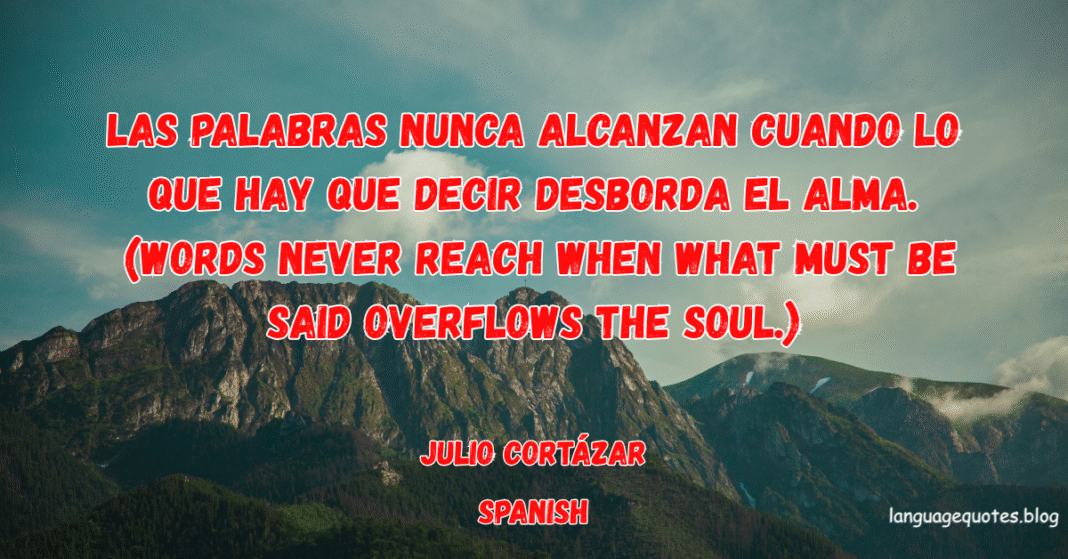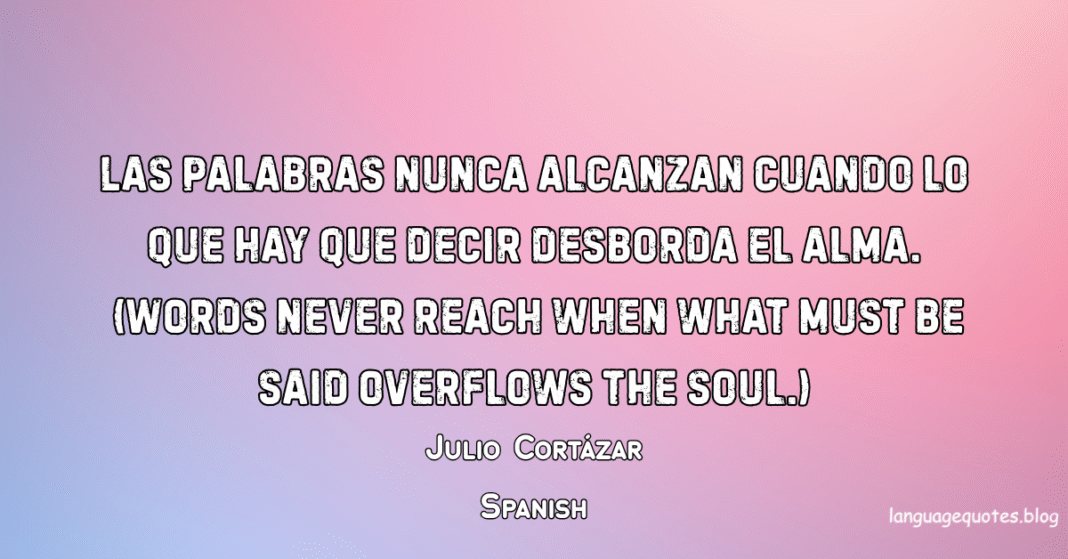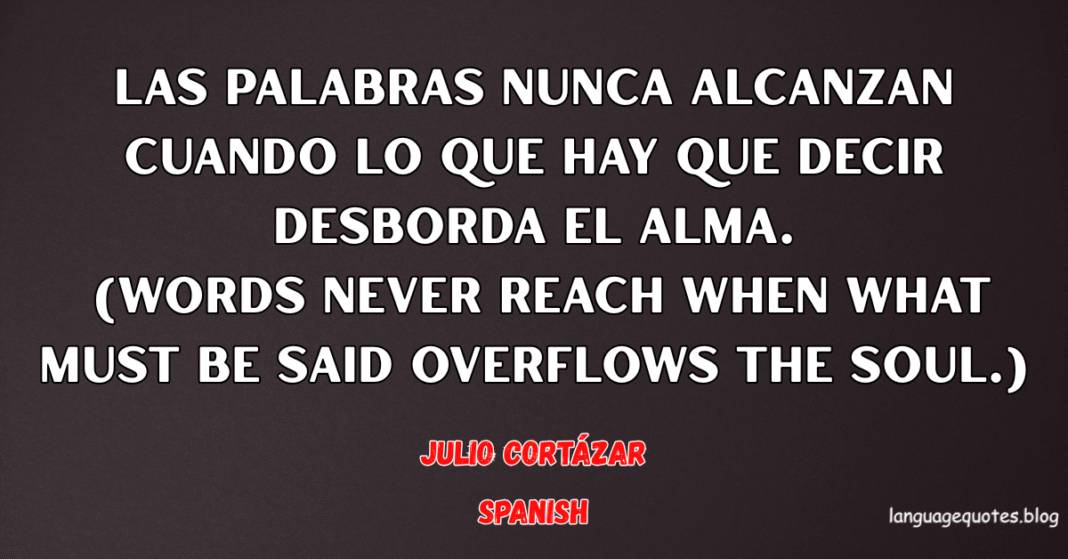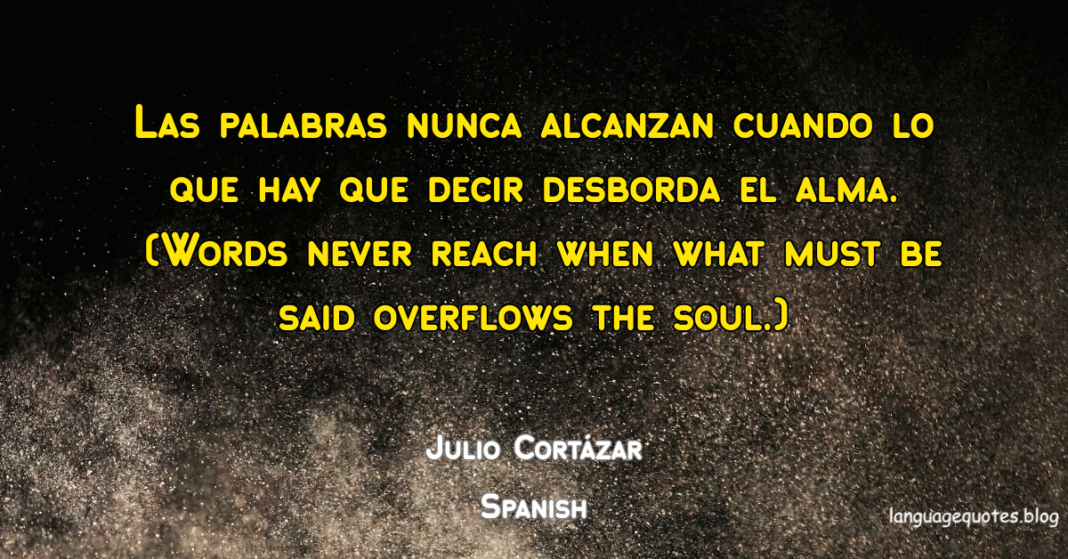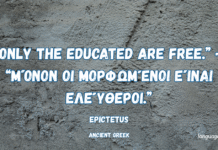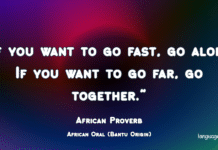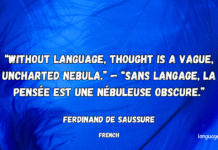“Las palabras nunca alcanzan cuando lo que hay que decir desborda el alma.”
(“Words never reach when what must be said overflows the soul.”)
— Julio Cortázar
💬 2-Line Comment:
Julio Cortázar captures the soul’s deepest frustration: the ache of feeling too much to say. Sometimes, silence speaks what language never can.
💬 Introduction: When the Heart Speaks Louder Than Language
Few writers had a way with language quite like Julio Cortázar. With this line—”Las palabras nunca alcanzan cuando lo que hay que decir desborda el alma”—he puts his finger on one of the most human struggles of all: that there are moments in life when words are simply not enough. Translated as “Words never reach when what must be said overflows the soul,” this quote delivers a deep emotional truth we’ve all encountered but rarely been able to describe.
At first glance, it’s about the limitations of language, but at its heart, it’s about the overwhelming depth of feeling—those moments of love, heartbreak, awe, or grief when no amount of vocabulary seems to do justice to what we carry inside. Cortázar turns that frustration into beauty, offering not just insight but emotional relief. He’s telling us, in essence: It’s okay when you can’t say what you feel. That, too, is deeply human.
🧠 The Limits of Language and the Vastness of the Soul
As communicative beings, we rely on words every day—through conversation, text messages, social media, or art—to express what’s on our minds and in our hearts. But Cortázar reminds us that language has a breaking point. The soul, filled with memories, hopes, traumas, and longings, often spills over. And when it does, our tools—words, syntax, language—fall short.
Think about moments of immense emotional weight: watching a loved one pass away, welcoming a child into the world, falling in love so deeply it scares you. These aren’t just emotional milestones—they are soul-sized experiences, and often we’re left fumbling for words that can’t possibly capture their magnitude. In such instances, language becomes a sketch, a rough outline of what’s really going on inside.
Cortázar’s quote doesn’t criticize language—it acknowledges its limitations, and by doing so, liberates us from the pressure of having to “say it right.”
🫀 When Feeling Overflows Expression
We’ve all been there: crafting a long message only to delete it, sitting in silence with someone, hoping they can read our eyes instead of our lips. We’ve experienced moments where what we feel cannot be said, only shared through presence, tears, a deep breath, or a trembling voice. These moments are sacred, and Cortázar helps us see that their power doesn’t depend on articulation.
He shows us that it’s okay—necessary, even—for some parts of our soul to remain beyond language. In fact, the most important emotions often don’t live in words. They live in gestures, in pauses, in the spaces between what we say.
🎨 Art, Love, and Spirituality: The Wordless Realms
Cortázar’s line applies to so many dimensions of life:
-
In love, we try to say “I love you” in ways that feel different, deeper, truer—but still, something is always left unsaid.
-
In grief, we say “I’m sorry for your loss,” but the weight of loss can’t be condensed into five syllables.
-
In art, we find paintings, songs, and stories that move us so deeply, yet when we try to explain why—we come up short.
-
In spiritual moments, we may feel divine peace or overwhelming awe, yet words fail to wrap around the experience.
All of these are soul experiences. And sometimes, we must accept that words, no matter how poetic, will only point toward the feeling, not contain it.
🧘♂️ Emotional Intelligence and the Power of Silence
Understanding that words aren’t always enough is a mark of emotional maturity. People who recognize this truth tend to be better at listening—not just to what’s said, but to what’s left unsaid. They notice the sigh in the middle of a sentence, the silence after a question, the unsent message that lingers between two people.
Cortázar’s quote teaches us that deep empathy often begins where words end. It invites us to be present with others not only through conversation but through acceptance, awareness, and patience. To sit with someone in their wordlessness is one of the most compassionate acts we can offer.
🌍 In a World That Demands Constant Expression
Today, we are encouraged to express ourselves constantly—through posts, reels, updates, comments, emojis. But many still feel unseen, misunderstood, or emotionally bottled up. Despite all the tools of expression, there are still moments when nothing captures the true feeling.
That’s where Cortázar’s quote finds its resonance today. It speaks to those quiet, overwhelming, emotionally rich moments that can’t be contained in 280 characters or a perfect caption. It reminds us that expression is not always verbal, and that the most profound emotions may remain private, sacred, and beautifully inexpressible.
📝 Conclusion: Beyond Language Lies Connection
“Las palabras nunca alcanzan cuando lo que hay que decir desborda el alma.” In this breathtaking line, Cortázar captures the essence of what it means to feel deeply. He reminds us that when we can’t articulate our inner world, we’re not failing—we’re just being human.
Sometimes, the truest things live in the unsaid. In the way we show up. In the trembling of a voice. In the silence shared between souls. So the next time you find yourself unable to express what you feel, take comfort. You are not broken. You are overflowing—and Cortázar understood that long before you ever had to.


